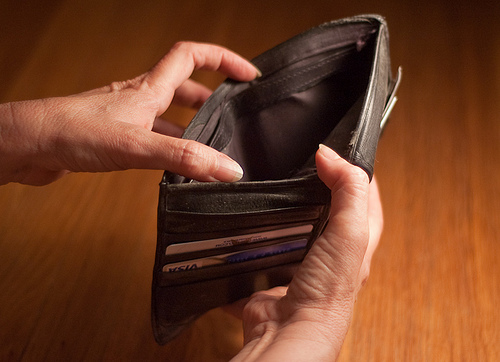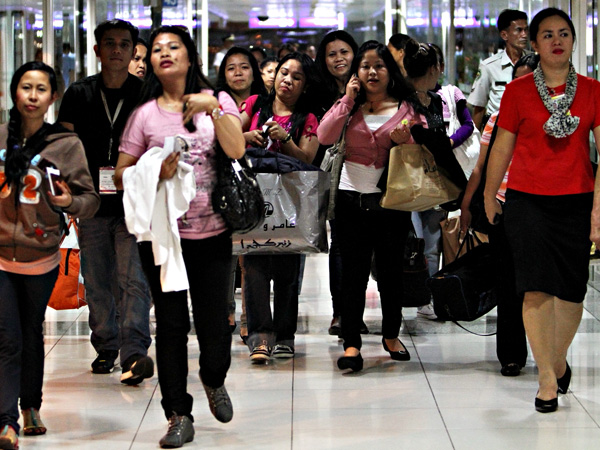OFWs Can Save Their Money While at Home! Here’s How.
Eight out of ten Filipino families have family members working abroad. And when they come home, the whole barangay would be there waiting for his pasalubong and what have he came back with.
Culturally, Filipino families are tightly knit, extended families are a norm. But while an OFW can only work for his immediate family, expenses soon flow out of this nuclear family. Even at times, close friends are considered ‘family members’ too. But is Filipino culture the sole culprit here?
What are Traits That Lead to Overspending?

We cannot just put cultural nuances as the sole target to blame for financial mismanagement. There are some bad traits and habits that can be easily identified, and can be corrected once these are acknowledged.
Here are some examples of these bad habits:
Most OFWs tend to over-remit. They work so hard that they minimize their personal spending abroad and have a great portion of their salaries sent to their families. But oftentimes, they are not in control on how their remittances are spent. Most of the time, too, that their remittances handle other expenses way beyond what is it originally intended for. Their remittances might be used for a medical expense of a distant relative, perhaps, and not by their immediate families. This practice leaves OFWs with little if not nary a personal saving for themselves.
OFWs find too that with bigger salaries means bigger ability to spend. Look around social media and see OFWs parading their pictures of newly-bought pair of sneakers that has just hit the stores, or even their dream watches and other paraphernalia, and end their posts with the hashtag #blessed. Having bought these might seem like an achievement for OFW from working, but keeping the habit of splurging in the long run might hurt their finances. They might even go home selling these stuff, at lower prices than what they actually paid for.
Then some OFW goes home every two years, and spend on celebrations like family gatherings, outings, shopping sprees. Throw in the gang too, and have drinking sprees here and there. Hey, it has been two years since they last saw their families and friends, and OFWs just wanted to see how they are doing. They may even flaunt their new shoes, their new watches.
Of course, there will be OFWs that will be thrifty, and will wisely put up a bank account. This may seem like a fine practice at first glance. However, after considering inflation and the ever-changing exchange rates, as well as low bank interest rates, and they might suddenly that money might as well be just stagnant fund.
What can be Done to Save Money While an OFW is at Home?
Now that these common habit mistakes are in the open, there are ways to either minimize, or totally eradicate them.
OFWs can learn to set three budget allowances: for themselves, for their savings, and for remittances. They are free to allot whatever percentage goes into each. Furthermore, they should not be obliged to handle expenses outside of their budget’s jurisdiction –it is not their duty anymore if it handles a distant cousin’s expenses. Give some, but not totally handle everything.
OFW’s must learn to identify needs from wants. Remember that anything that falls under food, shelter and clothing are needs – but not too extravagant like the latest shoes, shirts, watches, or any other material things for personal effects, as these are already wants. So is funding a house back home. A house is a need, but having more rooms and furnishings than necessary, are already wants. Going home, identify what is needed – a vacation is a need from all the hard work, but going on an extravagant trip with family and friends might as well be a want.
OFWs must also ditch the “pasikat” attitude – they do not have the sole responsibility to finance everything. A budget allowance plan when going home is a good starting plan and OFWs must keep up with that. They do not need to handle every expense just because they are perceived to be earning much more than the average Jose here in the country. Every purchase, every expense should be scrutinized under checks and balances. Scrimping may not be fashionable in the eyes of friends, but hey, money can burn just as fast, and they have to realize that if they really are true friends.
OFWs must have a long term attitude. The thrifty should start identifying financial options such as putting up a business. They should also be the role model of their immediate family to start working hard, and that business venture can be a good practice ground. OFWs are also free to identify and study other financial ventures, for example, financial stock investments.
Lastly, and perhaps the most important, is that OFWs must learn to say “no.” Extended family might politely ask for help – politely answer “no” or offer minimum help. Friends might cause peer pressure for OFWs to buy ‘these and that’ things just because those are the latest trend, or even pressure them for a barkada treat –say something in a creative manner that means “no peer pressure please.” OFWs should let others know that there lies a bottom with money matters, and money should not be abused by spending too much.
For more information on money mistakes OFWs always do, you can check out this article.
Keeping tab of these tips, as well as good financial practices, can help OFWs spend less, and ultimately gain more from their hard earned money







